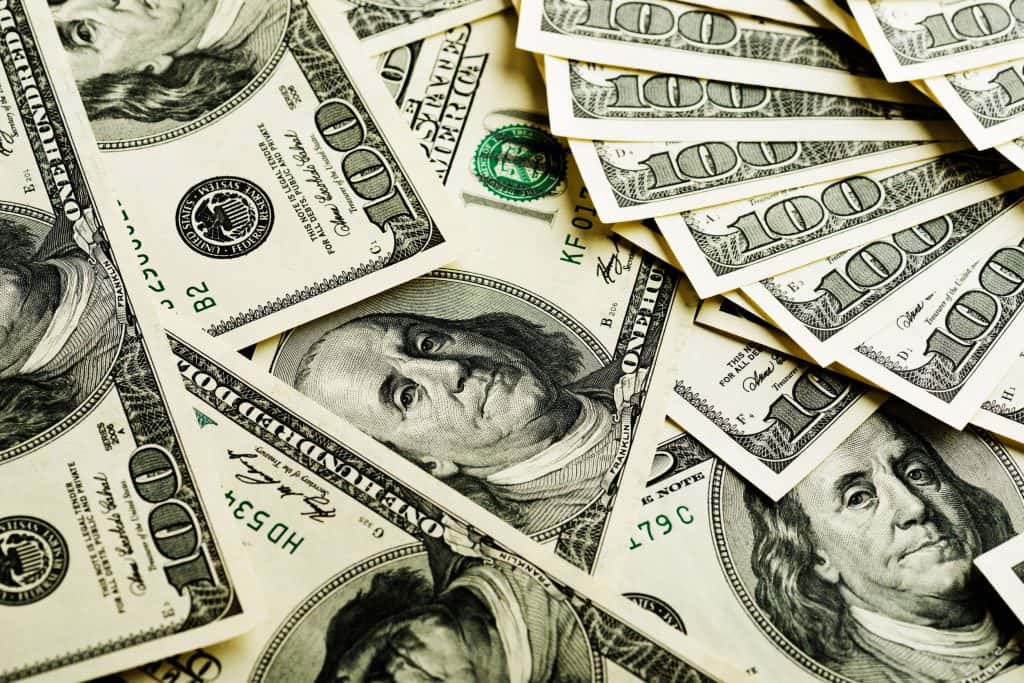(This story appears in the September issue of MJBizMagazine.)
The coronavirus pandemic popularized direct-to-consumer cannabis delivery, but marijuana operators say the practice is here to stay.
“People just don’t want to have to leave their houses for anything these days,” said Monica Gray, chief operating officer of delivery-only cannabis retailer Nice Guys Delivery in San Rafael, California.
For marijuana retailers in jurisdictions that permit delivery, a well-designed delivery service will be a critical way to capture market share and serve customers.
Outsourcing Versus Building
Creating a successful delivery service can be a major undertaking. Where regulations allow, some smaller dispensaries prefer to outsource delivery to third-party operators, such as Nevada-based Blackbird, which does deliveries for dispensaries in Reno and Las Vegas.
“We just take the headache away,” said Drea Ballard, Blackbird’s regional operations director for Nevada. “All you’re concerned about is filling the product as you would any retail sale in the store.”
Meanwhile, some larger dispensaries see value in controlling the delivery experience from end-to-end.
Las Vegas-based Planet 13 Holdings moved away from third-party delivery services and built an in-house delivery system a few months before pandemic-related shutdowns took effect in March 2020, Vice President of Marketing David Farris said.
“The way that you offer exceptional service is to control it yourself,” he said. “We were (tired of) apologizing for mistakes that weren’t our fault or delays that we didn’t have control over.”
Even with in-store shopping opening up as the pandemic eases, Farris said a lot of consumers are still placing delivery orders because of the convenience. “They don’t want to buy cannabis any other way anymore.”
Focus on Drivers
Hiring a third-party delivery service was never possible for Nice Guys Delivery because of California regulations that require deliveries to be made by workers directly employed by licensed retailers.
Nice Guys had 20 employees at the start of 2020, with its staff growing to about 55 this past June as a direct result of the pandemic. About 30 of those employees are drivers.
Clean driving records and background checks are an obvious starting point when hiring delivery drivers. Beyond that, customer-service skills are critical, Nice Guys’ Gray said. “They’re the actual face that is going to be at the customer’s doorstep.”
Most of all, said Blackbird’s Ballard, drivers should be consistent and reliable, ready to show up and deliver the goods.
“The first thing I look for is someone who’s going to show up five days a week,” said Ballard, adding that Blackbird experiences better results with full-time drivers rather than part-time ones.
Dependable, friendly drivers also can reap benefits in the form of tips.
“Our delivery drivers do very well,” Gray said. “I joke all the time that I’m going to quit my job and just start to drive.”
Keeping Drivers Safe
Since drivers deliver high-value inventory, their safety is paramount.
Blackbird puts tracking units on all its delivery vehicles for safety purposes, but they also offer an operational bonus. “We can move deliveries around if we need to, because we know exactly where everyone is at all times,” Ballard said.
Blackbird also has an exact-change policy, so that drivers aren’t carrying large amounts of cash in order to make change.
Gray of Nice Guys Delivery said her customer-service team double-confirms the details of every delivery location to make sure it’s legitimate.
“If there are any red flags—like an address being in a parking lot—we won’t do the delivery,” she said. The company also monitors local police and fire activity to steer drivers away from trouble.
Planet 13’s security team trains its drivers to improve their situational awareness and help them make safe decisions, Farris said.
Fees or No Fees?
Blackbird charges cannabis retailers a flat delivery fee of around $10, plus a per-mile rate. While some stores pass the fees on to consumers, Ballard said most of them cover the delivery fee themselves.
Charging fees is one way to recoup the costs of a delivery service, but some delivery operators simply require a minimum-order value to qualify for free delivery.
Planet 13, for example, requires an order of at least $50, Farris said.
“We do want to offer these services for free,” he said, adding that free delivery promotes customer loyalty while ensuring order sizes that cover the cost of delivery.
“If you’re ordering a $40 product and paying $15 in fees just to drive it to your house, why not just spend $50?” he said.
In California, Nice Guys Delivery doesn’t charge fees, either. The company requires a $50 minimum order for deliveries in its home area in Marin County and a $100 minimum for deliveries to San Francisco.
“I feel a minimum (required) order structure is more transparent,” Gray said. “No one likes to see additional fees at checkout, despite you even saying that you have a delivery fee upfront. People get disappointed when they go all the way to the cart and they see an additional fee.”
Vehicles and Insurance
Vehicles are a must-have for cannabis delivery services, and buying and leasing are both viable options.
Blackbird started out buying vehicles but switched to leasing to help reduce maintenance costs. The company exclusively uses Toyota Yaris subcompact hatchbacks, which Ballard described as inconspicuous, safe and reliable.
“Most of our cars are getting between 40,000 and 60,000 miles a year, so there’s a lot of wear and tear on them. Leasing definitely made a lot of sense as we expanded.”
The cost of insuring those vehicles for cannabis deliveries is “astronomical” compared to regular car-insurance prices, Ballard added. Proof of driver training helps lower premiums slightly, he said, but there hasn’t been much competition in the cannabis insurance space until recently
Farris agreed, saying the cost of insurance for Planet 13’s delivery fleet has been challenging.
“We’ve gotten more strict with who we’re hiring and what’s on their record and their driver history … just to try to mitigate (high insurance premiums) as much as possible,” he said. “But the costs are significant either way.”
Nice Guys Delivery uses mostly hybrid gas-electric vehicles, such as the Toyota Prius, to help save on fuel costs.
Cannabis businesses often face difficulties securing loans and financing, Gray said, so companies might have to pay cash upfront for vehicles.
Back-End Software
For cannabis delivery services, software helps manage the logistical complexities of accepting and processing orders for delivery. Rather than developing their own software, many dispensaries use platforms developed by third parties.
Nice Guys Delivery uses the Meadow point-of-sale system, which includes delivery-management functionality. Gray said she had considered building a custom software tool for her business but ultimately thought better of it.
“Why spend hundreds of thousands of dollars … when there’s something existing (for which) I could pay a monthly fee?”
Blackbird has its own software product, which Ballard said is helpful for tracking and retaining customers on top of filling regulatory compliance needs.
“We have geo-fences—areas that are off limits, because of a municipality not offering (cannabis) retail in their neighborhood or city—that can be weeded out through Blackbird, and then someone using that address wouldn’t be able to even place an order.”
Planet 13 uses Dutchie and I Heart Jane to manage orders, and the company is transitioning fully to Dutchie going forward.
The software costs retailers $250 per month and offers tools to manage and fulfill cannabis orders in line with regulatory requirements.
Dutchie co-founder and Chief Product Officer Zach Lipson said Dutchie can also be integrated with third-party fleet management software and offers two-way communication with customers and automated delivery notifications.
“You need a consumer experience that is smooth, that is enjoyable—and, frankly, allows you to receive these delivery orders … in a very simple and easy way,” he said.
“I think it really is critical that retailers in the space are really meeting their customers where they want to be,” Lipson added. “And that, really, in today’s world, is online.”





